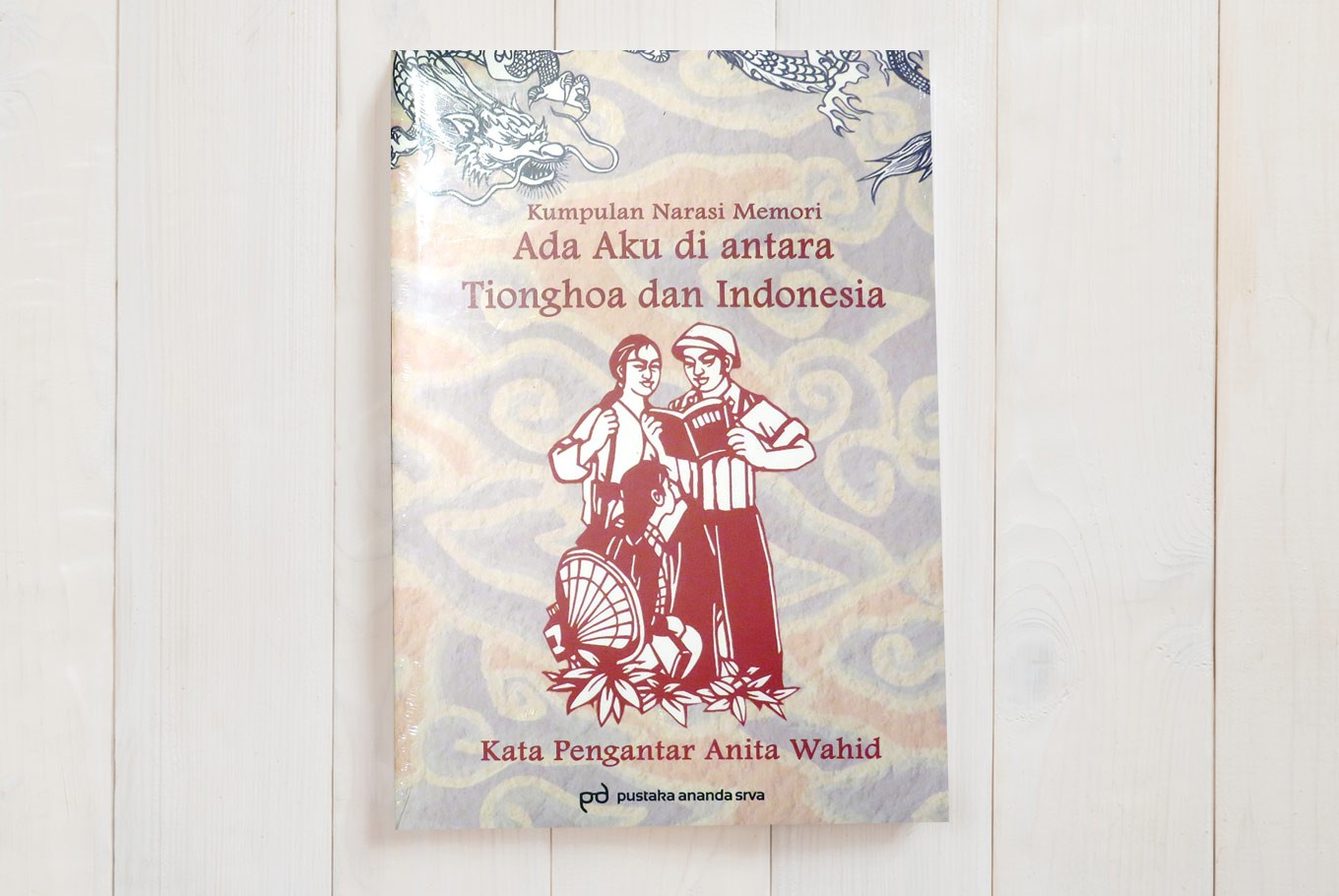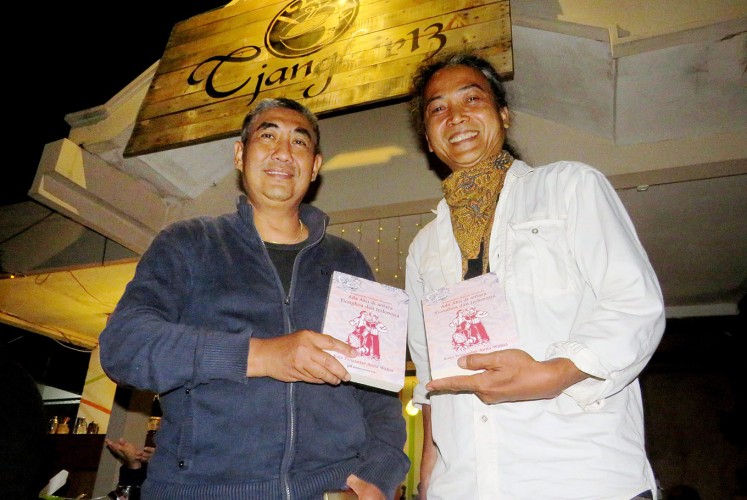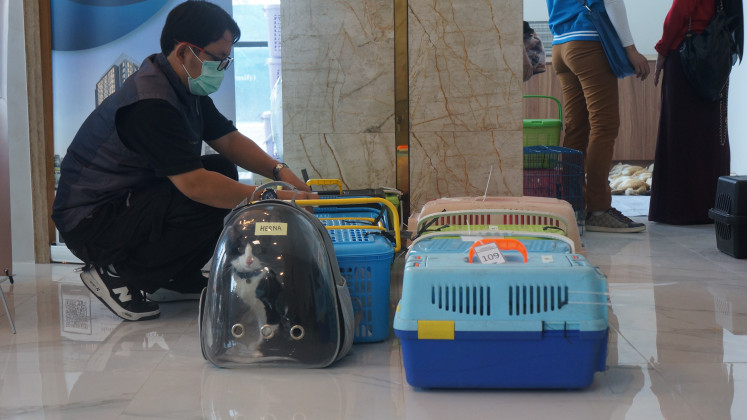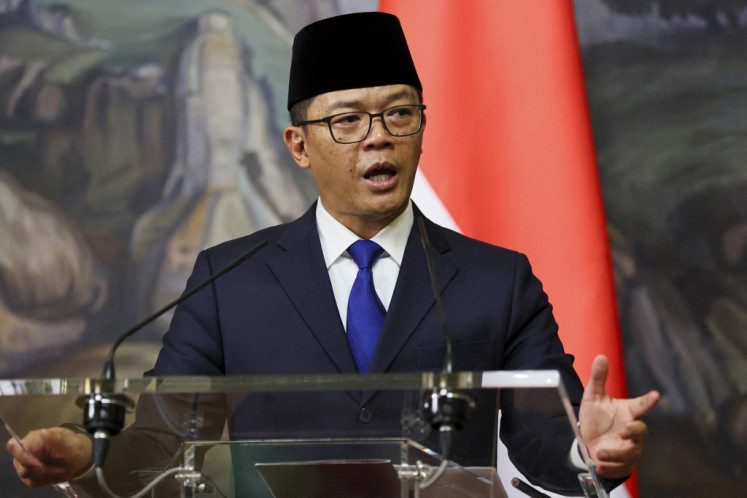Popular Reads
Top Results
Can't find what you're looking for?
View all search resultsPopular Reads
Top Results
Can't find what you're looking for?
View all search resultsCollective memoir highlights Indonesia's ethnic Chinese issues
The book is a collection of voluntary narrations by 73 writers from diverse religious and ethnic backgrounds about the ethnic Chinese community in Indonesia.
Change text size
Gift Premium Articles
to Anyone
 Collective memoir: The book is a collection of voluntary narrations by 73 writers from diverse religious and ethnic backgrounds about the ethnic Chinese community in Indonesia. (Shutterstock/JP/Nedi Putra AW)
Collective memoir: The book is a collection of voluntary narrations by 73 writers from diverse religious and ethnic backgrounds about the ethnic Chinese community in Indonesia. (Shutterstock/JP/Nedi Putra AW)
W
ith the various opinions expressed and discourses held about the ethnic Chinese community so far, a book has finally been published, containing various narrations about this issue for everybody’s scrutiny.
During the 1980s a children’s puppet serial, Si Unyil, was aired by the national television station TVRI on Sunday mornings.
The puppet show drew public interest with its concept of a pluralist society as portrayed by its characters.
Si Unyil has a playmate, si Ucrit, a Catholic. There are also rujak (seasoned fruit salad) seller Bok Bariah from Madura and Pak Raden who firmly observes Javanese tradition.
Interestingly, Unyil’s other friends are Meilani and her younger brother Bun, representing ethnic Chinese assimilation into Indonesian society. They all live peacefully.
However, this ideal situation was becoming eroded, as shown in the May 1998 rioting. This reality seemed to disturb Pietra Widiadi who eventually released a book, Ada Aku di Antara Tionghoa dan Indonesia (My presence between the ethnic Chinese and Indonesians).
“This is a collection of voluntary narrations of the memories of 73 writers,” he said during a recent discussion of the book in Malang, East Java.
“The writers aren’t just ethnic Chinese, but they also come from different backgrounds, religions and genders, covering artists, academics, socioreligious activists and scientists,” he added.
Because so many people contributed, Pietra and his peers had to select the works.
Pietra, as one of the writers, related his experience when he moved from Jakarta to Sumbersuko village, Wagir district in the Mount Kawi zone, Malang regency, where locals called him Om (uncle), which he later understood because they saw him as a rich citizen.
“It was also due to my appearance as an ethnic Chinese with straight hair and chink eyes,” he noted.
Although the term of address was gradually abandoned as he managed to mingle with residents, Pietra still noticed that local people’s way of viewing ethnic Chinese in general remained unchanged.
He thus raised the question of whether members of the various ethnic groups in Indonesia can get over it in maintaining natural relationships amid the diverse conditions of daily life.

Pietra acknowledged that such diversity and pluralism made the book’s contents varied, some with negative connotations and others recounting moving friendships.
Meanwhile, the reactions that arise after reading this book are a matter of individual perceptions.
“It can serve as a means of learning to conceive one’s perception as to how people should be able to maintain mutual respect despite differences,” he said.
Based on the result of discussions and reviews since the book was launched during World Racial Discrimination Abolition Day on March 21, he plans to publish a follow up.
At the various talks about the book, testimonies were also made by several of those present.
A discussion participant, Malang’s Indonesian Chinese Association chairman Agus Endra, welcomed the book.
“I come from Semboro village in Jember, East Java, where ethnic Chinese is a minority,” Agus said.
He added that had been lucky to find a culturally peaceful community in the village, but that had once been on the receiving end of unpleasant treatment that made him regret being ethnic Chinese and non-Muslim. Yet he realized that, in anyway, Indonesia had become his motherland.
He added that the association was open to everybody with the vision of collaboration rather than an exclusive ethnic Chinese one.
“One of my recent programs was entrepreneurship training for Malang’s Muhammadiyah University lecturers,” he said.
Astuti Parengkuh, a writer joining the discussion, recounted her harmonious childhood with her ethnic Chinese neighbors in Solo, Central Java, until the outbreak of the May tragedy in the city.
“I only need to emphasize that no more tragedies related to whatever ethnic group should ever recur by learning from history,” she maintained.









